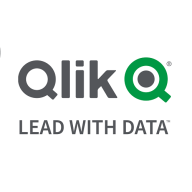

Qlik Replicate and SAS Data Integration Server are competing in the data integration solutions category. Qlik Replicate might have the upper hand with its user-centric design and efficient integration capabilities, while SAS Data Integration Server attracts those who need a comprehensive feature set.
Features: Qlik Replicate includes real-time data replication, ease of use for quick synchronization, and efficient integration, ideal for businesses seeking rapid data processing. SAS Data Integration Server provides robust data management, advanced data transformation, and quality controls, along with detailed analytics and reporting for businesses requiring extensive data manipulation.
Ease of Deployment and Customer Service: Qlik Replicate has a straightforward deployment model, minimizing time and effort to start integration, with effective customer support improving the user experience. SAS Data Integration Server, while involving a more complex setup due to its extensive features, offers comprehensive support and resources suited for organizations with complex needs.
Pricing and ROI: Qlik Replicate is often seen as cost-effective, providing a quicker setup with an attractive ROI for companies focusing on rapid data integration. In contrast, SAS Data Integration Server may require a higher initial setup cost, but its extensive functionalities offer potential long-term benefits for enterprises prioritizing deep data analysis.

Qlik Replicate is a data replication solution for replicating data from one source database to another for business intelligence software. It offers data manipulation and transformations, replication without impacting source databases, and ease of use without needing ETL. The solution is stable and user-friendly, with detailed logging and support.
Qlik Replicate has improved the organization by allowing each team to replicate their data into a single-source data location. The most important feature of Qlik Replicate is its ability to replicate and update records without needing a programmer.
We monitor all Data Integration reviews to prevent fraudulent reviews and keep review quality high. We do not post reviews by company employees or direct competitors. We validate each review for authenticity via cross-reference with LinkedIn, and personal follow-up with the reviewer when necessary.